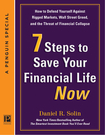
2012 was a terrible year, if you consider major political and economic events.
In March 2012, oil hit $125 a barrel, sending gas prices to new highs and having a dramatic impact on the anemic economic recovery in the U.S. Europe experienced unprecedented economic woes, with the very real prospect of a default of sovereign debt by Greece, Italy, Spain, and Portugal.
The growth of emerging market countries slowed markedly, led by China.
The U.S. deficit crisis continued unabated.
The Mideast remained a tinder box waiting to explode, with major upheavals in Egypt and Syria.
The U.S. elections created uncertainty and roiled the markets.
The prospect of going over the fiscal cliff cast an additional pall on the markets, with many investors "fleeing to safety" until "things settle down."
I am unaware of any stock market gurus who predicted all of these events, but what if they had? Many investors would have dumped their stocks and stood on the sidelines. If you were one of them, you would have missed out on stellar returns delivered by the stock market. Vanguard's Total Stock Market Index Fund (VTSMX) reported after-tax returns of 16.25 percent in 2012. Vanguard's Total International Stock Index Fund (VGTSX) did even better, reporting 2012 after-tax returns of 18.14 percent.
While index-based investors had a lot to smile about in 2012, investors relying on some stock market gurus were disappointed. John Paulson was hailed as the next "master of the universe" for his hugely profitable bet against mortgages in 2008. Investors flocked to his Paulson Advantage Plus Fund, hoping the magic would last. It didn't. In 2011 the fund lost 52.5 percent of its value. The fund "recovered" somewhat in 2012, losing only a reported 19 percent!
Paulson was not the only hedge fund manager who performed poorly in 2012. The HFRX Global Hedge Fund Index returned a measly 3.5 percent in 2012.
As you consider your investing strategy, you should reflect on this data. Remember that markets don't always react to bad news the way you might think it will. The predictions of stock market pundits are wrong as often as they are right. Even if they are right, their insights might not help you predict the reaction of the market. Be wary of stock market gurus who claim to have the skill to "beat the market." Their past success is more likely attributable to luck and is unlikely to persist.
You will find academically based information about investing in my books and those written by Bill Bernstein, John Bogle, Allan Roth, Burton Malkiel and my colleagues Larry Swedroe and Carl Richards. An investment of time and money educating yourself about responsible investing can make the difference between meeting your financial goals and running out of money when you are most vulnerable.

